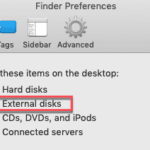
Want to build a website? Not sure which kind of hosting to opt for? We’re here to help you.
There are a few questions to ask yourself before you settle for Shared, VPS, or Managed WordPress hosting. First and foremost is whether you are a beginner or a seasoned webmaster. If you’re a beginner, do you have an employee or an associate with a knack for server management? What is your budget? What is the scalability of your website? Do you expect it to see a lot of traffic, or do you want it to simply serve the purpose of an online business card?
Once you have these answers, it’s much simpler to make your choice.
Shared Hosting
Shared Hosting is when you share the server with many other sites. In such a setup, your site resides in the server with several other websites and shares resources such as memory, disk space, and CPU time with them. It’s not all bad though.
Most websites use Shared Hosting as it is the cheapest hosting option available. If you are someone who’s just starting out, or someone who has four-five projects that you’re experimenting with, Shared Hosting is the best option for you.
For:
- Small businesses, niche blogs, and beginners
Pros:
- Affordable: A Shared Hosting plan costs very little, and is great if you want to start with little investment.
- Easy to navigate: Shared Hosting offers you a user-friendly control panel to manage your site with ease.
- No technical skill required: You don’t have to be a techie to run a website on shared hosting. Usually, your service provider takes care of technical maintenance.
- Unlimited visitors: Many shared hosts advertise “unlimited visitors”. Although that may not be true, most shared hosts will not impose a strict visitor limit on your website.
Cons:
- Limited volition: Because your site is hosted on the same server as a few other sites, your hosting provider will not give you the root administrative access. You may also need permission before making some changes to your website.
- Slow speed & downtime: As there is always the likelihood of the server getting overcrowded or the resources being overused, you can expect a slower speed.
- Impact on SEO: Slower speed and frequent reboots can impact your rankings, as well as how the search engine views your site.
VPS Hosting
VPS stands for Virtual Private Server. As the name suggests, a VPS Hosting plan will give you a server that is your own and is not shared with any other website.
For VPS plans, a physical server is partitioned into multiple virtual servers. Each virtual server stores one website only. So, although the physical server is the same, you do not have to share resources with other websites and have much more control over yours.
For: Medium-sized businesses, as well as small websites that require higher technical freedom
Pros:
- Better performance: Since you do not need to share the server, your website speed and performance will improve by a good margin.
- Higher technical freedom: VPS hosting gives you more flexibility for technical management. You’ll get the administrative access to configure settings, install software, and do much more.
- Higher security: Your website is more secure with VPS hosting, as it is isolated from other sites, and will not be affected by their security mistakes.
Cons:
- More technical: To run a site on VPS requires some level of server management skill. It also needs more of your time and attention as everything ranging from software updates to upgrading plugins, security, as well as maintenance needs to be taken care of by you.
- Higher cost: Considering all of its pros, it should be no surprise that VPS hosting costs more than shared hosting. However, there are websites that offer VPS hosting plans for really cheap, like GoDaddy. In fact, if you register via GoDaddy’s coupon partners, you can get one for as low as a shared hosting plan.
3. Managed WordPress Hosting
If you want to run a WordPress site, you can do so on a shared server, a VPS server, or a dedicated server. But the best option for you is to go for Managed WordPress Hosting. Investing in great Managed WordPress hosting will be worth your bucks. Here’s why.
Managed WordPress hosting is a concierge service for your WordPress website. It manages all the technical aspects of WordPress for you. It not only installs WordPress automatically but also helps maintain your site with features like automatic updates and automatic backups.
For: Growing businesses
Pros:
- Better performance: Managed WordPress hosting optimizes your website for performance, as well as for SEO. It also enables your site to load faster, as every configuration is specifically set for WordPress.
- Better Security: With security features that are specifically focused on WordPress, it is able to equip your site with better security.
- User-friendly dashboard: It allows you to manage your site on a custom-designed dashboard. You can perform actions like managing your plugins, viewing automatic backups, manually taking a backup, and much more.
- Lesser maintenance: With Managed WordPress hosting, you neither need the skills nor time to maintain your site. You can completely focus on growing your business, while the rest is taken care of.
Cons:
- Only WordPress sites: You can only host WordPress sites under this type of hosting.
- Stricter visitor limits: Managed WordPress hosts usually impose stricter limits on the number of visitors to your site.
- Expensive: It is more expensive than regular WordPress hosting
- Lesser control: Because the host takes care of the technical aspects of your site, you will have lesser control over it. Also, some Managed WordPress hosts may put restrictions on the plugins you can use, in order to maintain good performance.
Now that you know the difference between Shared, VPS, and Managed WordPress Hosting, you can go ahead and make a decision that’s right for your business.
About the author: Jagruti Jaiswal is a content writer who likes to research by day and create by night. If not by her laptop, you’ll find her making cup noodles and soaking sunlight in her penthouse.








